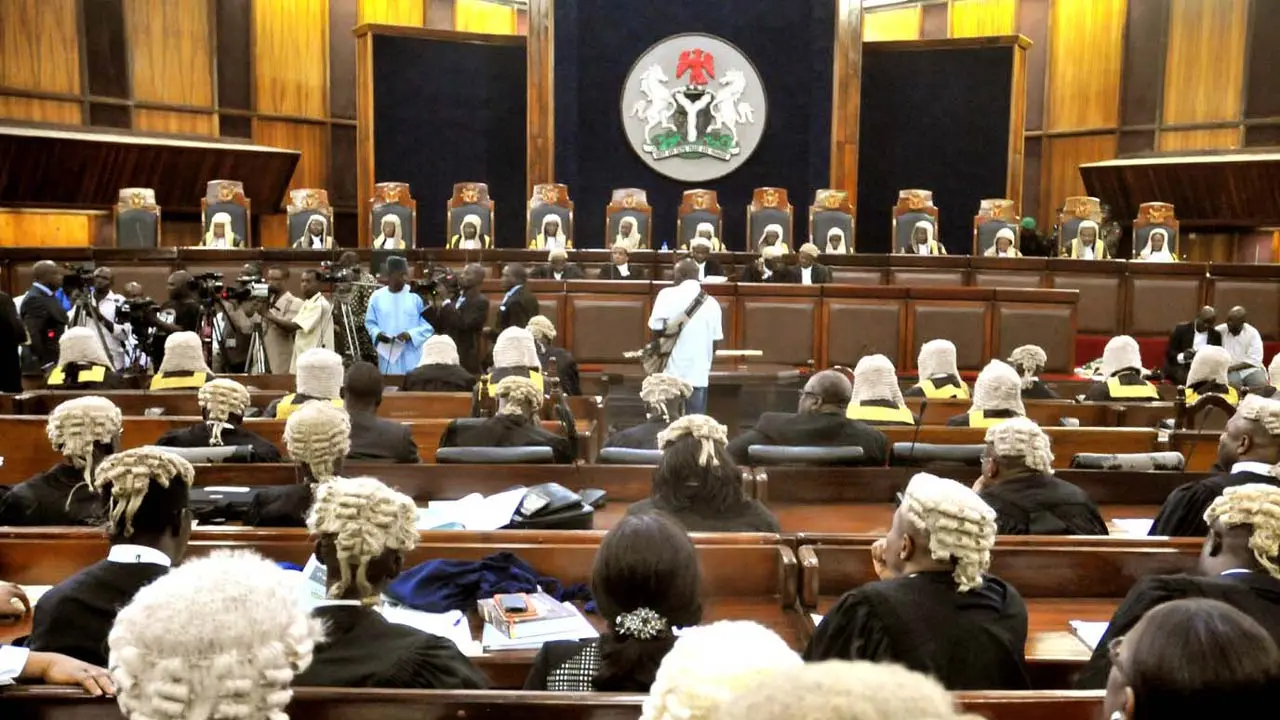
There is no doubt that the naira has been in a very bad shape with free-fall in value since this administration came on board. The CBN, in presenting the new currency plan, had leveraged the unease with substantial currency holdings outside of the banking sector and the purportedly detrimental effect on the effectiveness of monetary policy to support the decision to change the notes. Additional justifications included a desire to strengthen its cashless policy and a determination to use more recent developments in currency production to reduce instances of currency fraud. The governor concluded by noting that while it was customary for central banks to redesign and issue new currency notes every five to eight years, the naira had not undergone such a change in the previous 20 years.
From data, it is unclear why there is such a worry about the amount of money outside the banking system being at 85% when the ratio of money outside the banking system to money in circulation has been consistent at over 80–90% in the last 20 years. Additionally, the proportion of currency held outside of the banking system to broad money (referred to as M3 in Nigeria) has been dropping from as high as 20–30% in the early 2000s through the decade and finally to 6.5% by the end of September 2022. This downward pattern is mostly a result of more people using electronic banking and other segments of the banking system. In fact, N18.7 trillion was in total demand deposits in the banking industry. The CBN’s concern that the N2.73 trillion outside the banking system was somehow harming monetary policy more than the N18.7 trillion in demand deposits would therefore seem perplexing notwithstanding these developments. The CBN makes valid comments concerning crime and currency counterfeiting, but the desire to redesign the currency appears more likely the motivating factor given the interval since the last such exercise. The effectiveness of monetary policy argument begs more issues than it answers.
The CBN’s move is not particularly novel. In 2016, the Indian government abruptly wiped out most of the nation’s currency in hopes of ending black money and curbing corruption. On the night of Nov. 8, 2016, in a live telecast to the nation, Prime Minister Narendra Modi declared that the country’s two highest-denomination currency notes (Rs 1,000 and Rs 500) would be withdrawn immediately from the market. The plan, termed demonetization by the press, was planned in secrecy and announced dramatically, as Modi’s masterstroke against black money and the onset of the digital, cashless world.
The immediate fallout was chaos, as the country scrambled to cope. There was a rush at banks and ATMs to exchange old notes and withdraw new currency. Queues at banks grew; many people suffered, especially the poor, who had no access to credit cards or mobile wallets; and dozens of deaths resulting from the crisis were reported. Two years later, the dust settled, and it became obvious that demonetization was not the resounding success the government expected it to be. India’s black money problem has not gone away.
For countries tackling black money or promoting a cashless economy, India’s experience with demonetization provides rich lessons. Although the long-term social, economic, and political consequences of demonetization are still playing out in India, answers to many complex questions are yet to fully unfold. Economists who supported demonetization predicted that black money hoarders would destroy their stashes rather than declare them, thus delivering a bottom-line bonanza to the country. But in August 2018, the Reserve Bank of India (RBI), the country’s central bank, confirmed that 99.3 percent of the demonetized notes had been returned to the banks. Almost nothing was extinguished. In Nigeria, the wealthy and political class have flooded the forex market with naira notes, buying the U.S. dollar at a premium and further pushing people with genuine needs to dire straits.
Nigeria’s scenario in the last few days has not been different, especially in the foreign exchange market. The naira suffered serious depreciation in the parallel market and has continued to fall with the N1000/$ level now in view. The drivers remained limited supply within the official windows as the CBN’s external reserves continued to slide owing to limited USD inflows on the one hand and the higher outflows to supply the official FX segments. Last week, Nigeria’s FX reserves maintained its decline for the ninth consecutive week, falling by $101.78 million week-on-week to $37.37 billion (01 November). At the I&E window, the naira depreciated by 0.2% to N445.50/USD. The monetary policy authorities have remained unmoved. Though the official rates remain low, the implications for inflation are dire, considering that many businesses literally shop for forex at the parallel market and prices are reflective of the same. For the average Nigerian whose income has not witnessed any significant change in the last five years, inflation rate is fast outpacing earnings.
On the flip side, the rush to deposit money in the banks will happen once the new notes surface. Like it has been with any other government policy, drastic decisions have implications for many Nigerians. As seen with the BVN and NIN registrations, the timeline for swapping the currency remains short for an economy where cash thrives and remains king in the informal sector.
Based on the present reality, Nigeria’s big tax evaders are known and do not really stash away bundles of cash. Rather, they have held their money in real estate, gold, and overseas bank accounts. Whatever was held in cash will definitely find its way back into the banking system. In India, it was reported that the wealthy sold their currency at discounted rates to money-laundering intermediaries (already happening in Nigeria at the parallel market), who then deposited the notes into the banking system through the accounts of low-income Indians. Ultimately, the RBI did not receive any windfall. This might end up being the sad reality of the CBN, except the CBN is working on tracking unusually high deposits.
While assuring Nigerians that the currency redesign exercise was purely a central banking exercise and not targeted at any group, the CBN expressed optimism that the effort will, among other goals, deepen Nigeria’s push to entrench a cashless economy in the face of increased minting of the eNaira. In a largely informal economy where the most vulnerable people still have no access to digital payments and remain poor, the currency redesign was ill-considered at this time. It is a draconian measure that will do a lot of damage to the Nigerian economy in the days to come. Clearly, the CBN has run out of ideas on managing the economy, especially dealing with rising inflation. While some argue that the currency weakness is transient, the buffers appear to be missing, considering poor earnings from oil, export and remittances.
At the end of the process, the benefits will not have been worth the enormous financial losses and avoidable suffering, especially in a system where crimes by the rich and political class are hardly prosecuted. The development could push more entrants towards Nigeria’s growing agency banking system, which is a tailwind for the emerging digital payments system, but would leave many struggling with inflation, a primary responsibility of the CBN. The three months timeline is enough time for money launderers to clean their tracks. The CBN needs to find ways to implement its policy without harming the economy and the common man. The discordant tunes between the minister and the CBN governor needs to be addressed as investors are watching. A divided house cannot stand, same as its policies. Elections will come and go but the impacts of policies linger.






